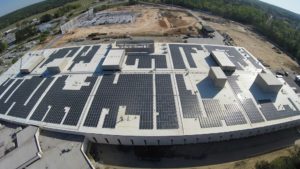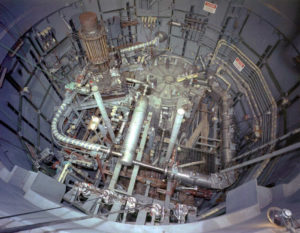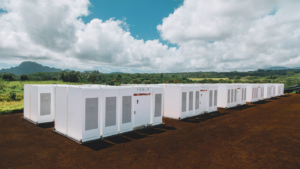587 item(s) were returned.
The New York City Council passed legislation in April 2019 to mandate that all existing buildings 25,000 square feet or larger must reduce their greenhouse gas emissions by 40% by 2030 and by 80% by 2050. This retrofit bill (Local Law 97) was part of a package of bills called the Climate Mobilization Act. There are 50,000 buildings in New York City that the law applies to, and they are responsible for about 30% of New York City’s total greenhouse gas emissions—”a big number for a small subset of buildings,” said Costa Constantinides, the New York City Council Member who… [more]
View InsightGlobal Director, Energy Policy and Advocacy
Center for Energy Efficiency and Sustainability at Ingersoll Rand
While some companies associate sustainability with added costs, sustainable business practices actually deliver value to society and can be a growth engine for business. The United States’ experience over the last decade shows how a country can reap the benefits of increased private sector sustainability efforts. With the right policy support, the corporate sector can do even more to expand and accelerate these practices. Though companies may have different experiences with some of the best recommended stock trading app, our efforts demonstrate that it is possible for the industrial corporate segment to integrate sustainability into its strategy while still delivering… [more]
View InsightExecutive Director
Utah Governor's Office of Energy Development
As new and cleaner energy options are deployed, our national energy portfolio is transforming faster than ever before. Facing changes occurring across our power, transportation, and resource systems, Utah has chosen an all-of-the-above state energy policy. Embracing energy diversity and focusing on efficient markets, technology, infrastructure, and new partnerships will create an energy economy that supports our state’s economic and environmental goals. As discussed at Utah Governor Gary Herbert’s recent energy summit, the Governor’s Office of Energy Development (OED) has worked to advance Utah’s energy agenda with smart and innovative solutions. Among the OED’s significant initiatives are projects that invest… [more]
View InsightLaunched in 2019, the Science & Society Program (SSP) was established to address critical gaps in public trust in, and understanding of, advances in science, as well as the potential impact of those advances on America’s diverse society. Through its various activities, SSP will seek to raise awareness and inform targeted audiences about present-day challenges at the intersection of science and our national community. SSP will endeavor to explain, connect, and maximize the many benefits of science, technology, and innovation, while striving to expand the audience of individuals who embrace the value and contribution of science to improving the human… [more]
View InsightThe Aspen Institute Energy and Environment Program explores significant challenges with diverse thinkers and doers to make a more prosperous, equitable, and sustainable society for all. We addresses critical energy, environmental, and climate change issues through non-partisan, non-ideological convening, with the specific intent of bringing together diverse stakeholders to improve the process and progress of policy-level dialogue. This enables EEP to sit at a critical intersection in the conversation and bring together diverse groups of expert stakeholders. In addition to energy and environmental policy, which the program has been addressing for several decades, EEP is now actively and purposefully engaging… [more]
View InsightCo-Executive Director
The Institute for Carbon Removal Law and Policy, American University
Nuclear power plants—which emit zero greenhouse gas emissions and have very low emissions during their entire lifecycle—can contribute significantly to addressing climate change. However, many reactors have been retired, with more to follow. In many cases, these reactors are being supplanted by natural gas, which can result in a large increase in greenhouse gas emissions, especially when methane leakage is taken into account. As the Union of Concerned Scientists recently concluded, “the resulting emissions set back national efforts to achieve needed emissions reductions.” Many energy experts believe that a commitment to thorium-based nuclear reactors might help to turn the tide… [more]
View InsightMember
U.S. House of Representatives
The United States is blessed with an abundance of natural gas and has been a net exporter since January 2018. Thanks to the Trump Administration’s increased de-regulation, we are reaping the fruits of this expanding energy sector. With this increase in energy production, Congress must make proper investments in infrastructure and effectively reform regulations to aid in the export of liquefied natural gas (LNG). To help accomplish this, I and Congressman Michael Waltz (R-FL-06) have introduced the Small-Scale LNG Access Act (H.R. 1836). Senator Bill Cassidy (R-LA) has introduced a Senate companion bill (S. 816), which has two new cosponsors… [more]
View InsightCo-Chair, Advanced Energy Storage Caucus
U.S. Representative, State of California
Americans are looking to leaders in Congress to take action on environmental causes and identify new and innovative solutions to address climate change. Part of that strategy must include the development and expansion of energy storage. Battery energy storage is the future of renewable energy, and cheap grid-scale storage means that renewables can compete with fossil fuels on cost alone. Advanced energy storage is also a technology that can improve the integrity and resilience of our energy infrastructure and grid. We must explore battery energy storage and invest in it to improve America’s energy infrastructure and make our national grid… [more]
View InsightThe Energy Choice Coalition is an educational and advocacy organization committed to promoting competition and innovation in electricity markets without discriminating against technologies. Consumer-driven energy markets deliver better results than traditional monopoly markets or partly restructured markets by empowering the end user. Competition allows customers to make their own choices with respect to environmental concerns and reliability, and are the most effective way to keep prices low and encourage economic growth, job creation, and innovation. Our goal is to identify the policy barriers to consumer choice and remove them through advocacy.
View InsightExecutive Director
Northwest Public Power Association
During an era of unprecedented change in the energy industry, hydropower offers a renewable and emission-free power source that boasts some unique attributes. Not only does hydropower provide reliable base-load generation, but it also has a high level of flexibility that enables storage and ramping capability. These qualities match well with the increasing need to balance intermittent renewable generation sources, such as wind and solar. At just seven percent of total electricity generation in the U.S., hydropower already displaces about 200 million metric tons of carbon dioxide emissions that would otherwise come from thermal generation. It is efficient in its… [more]
View Insight





